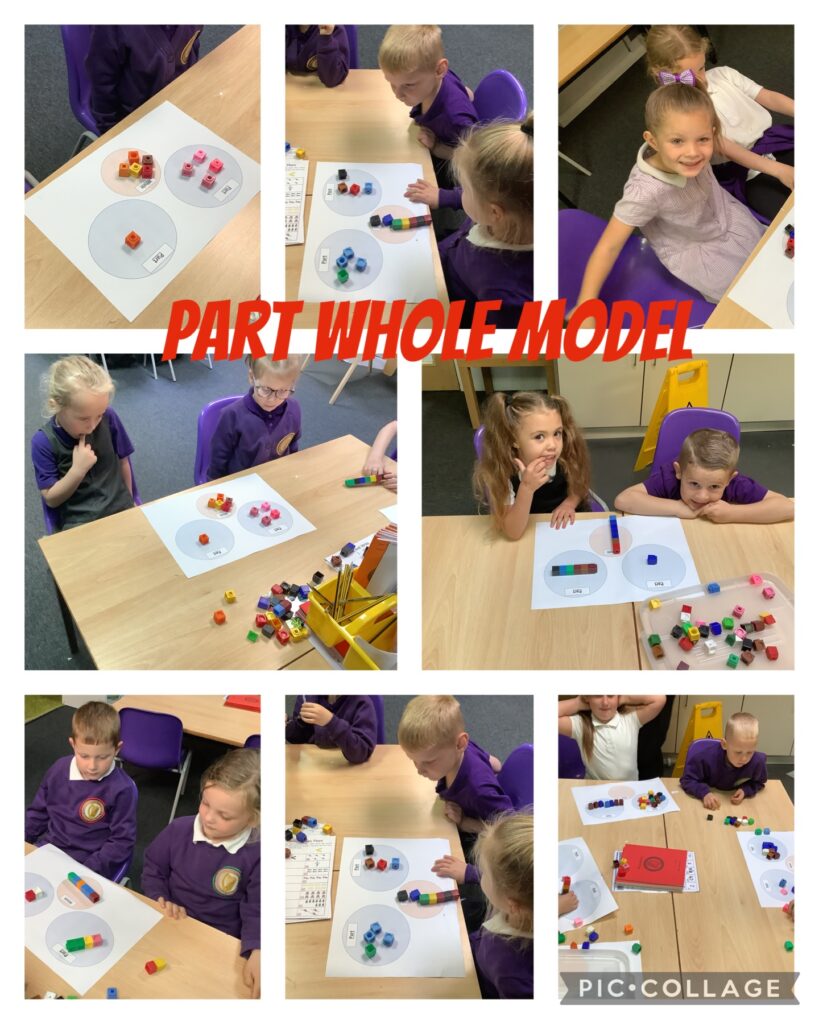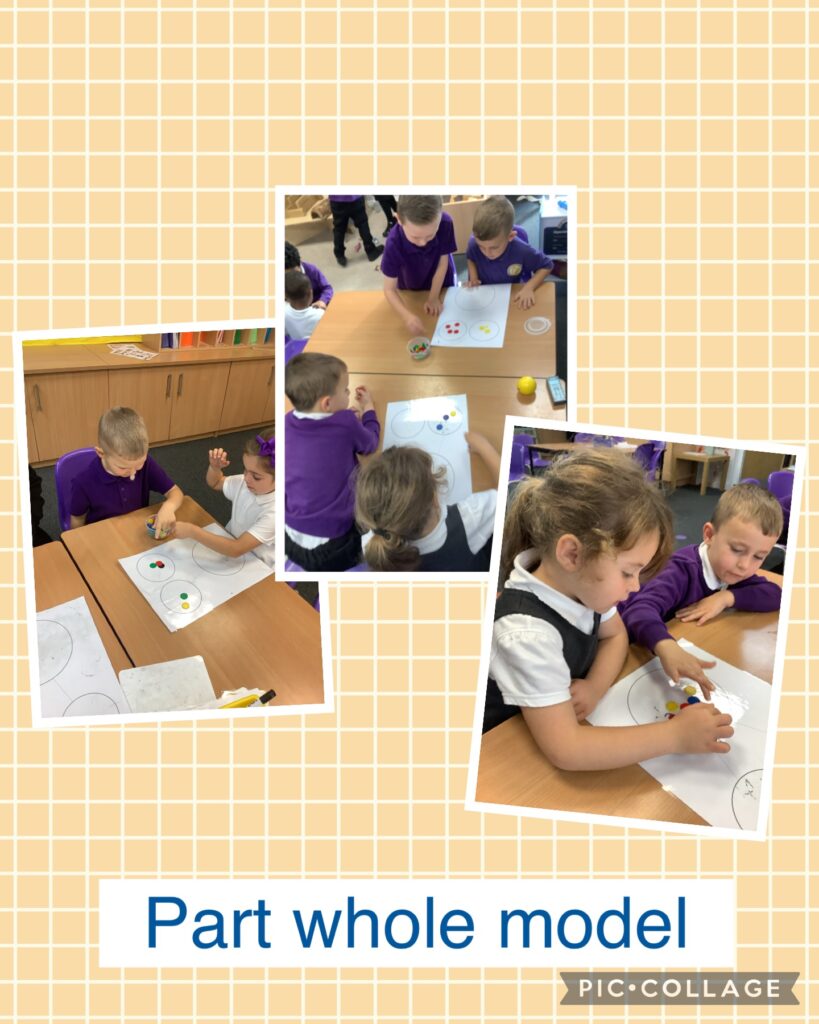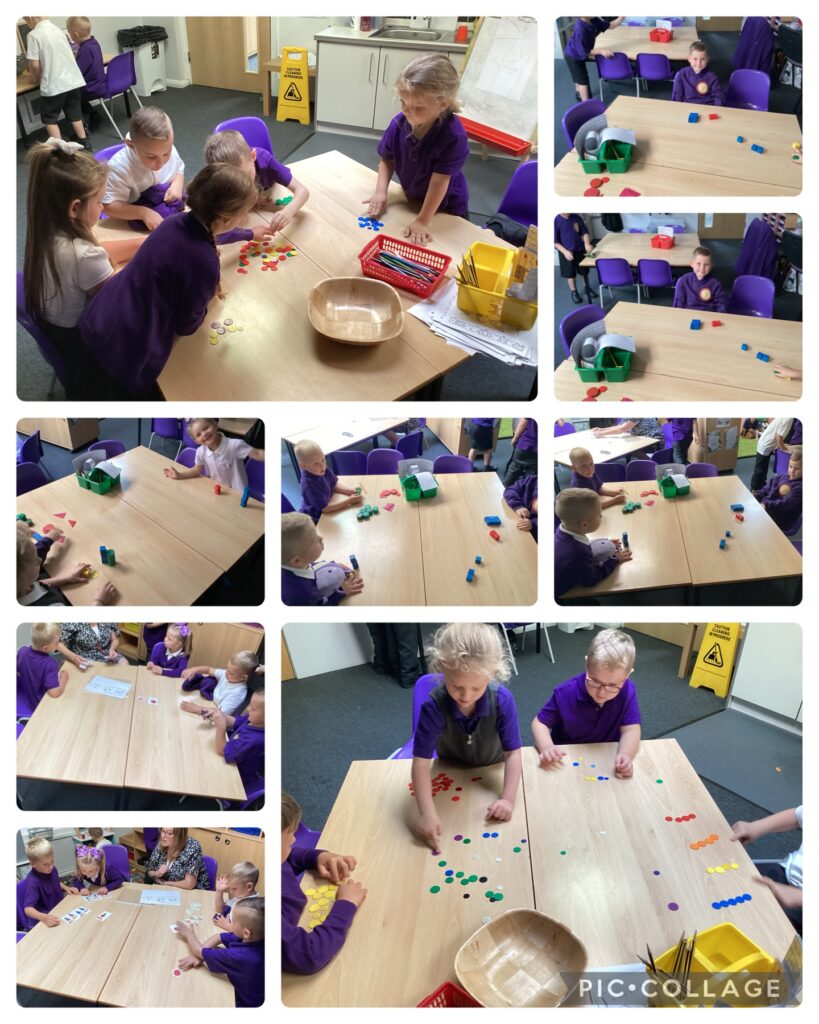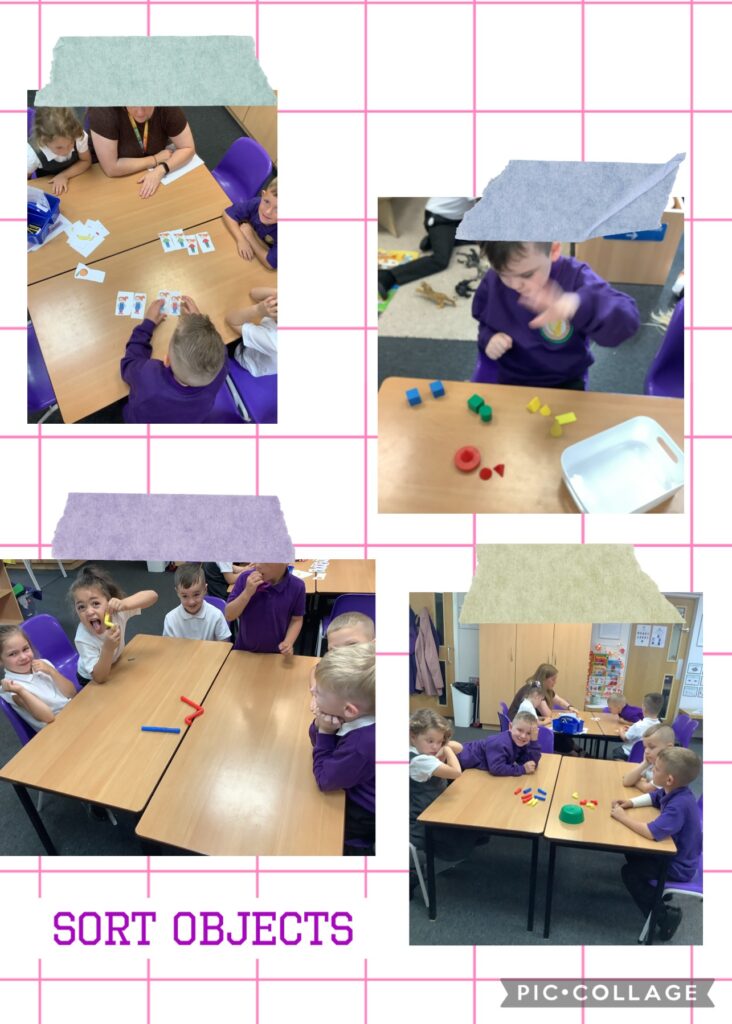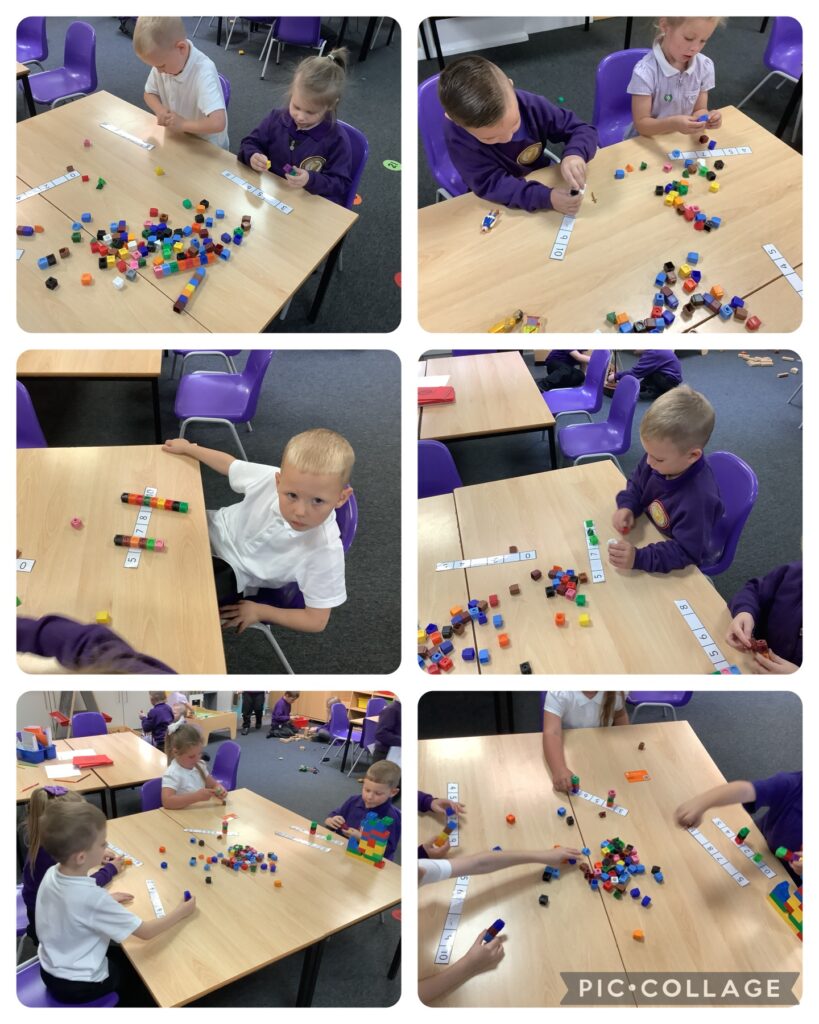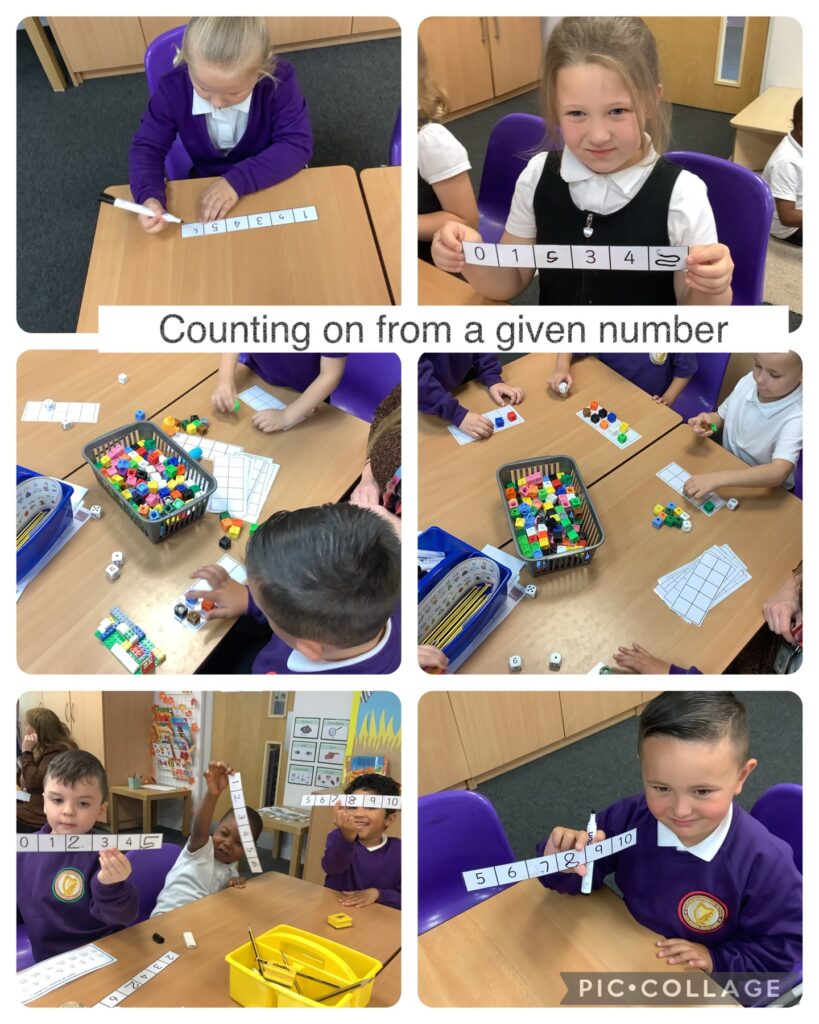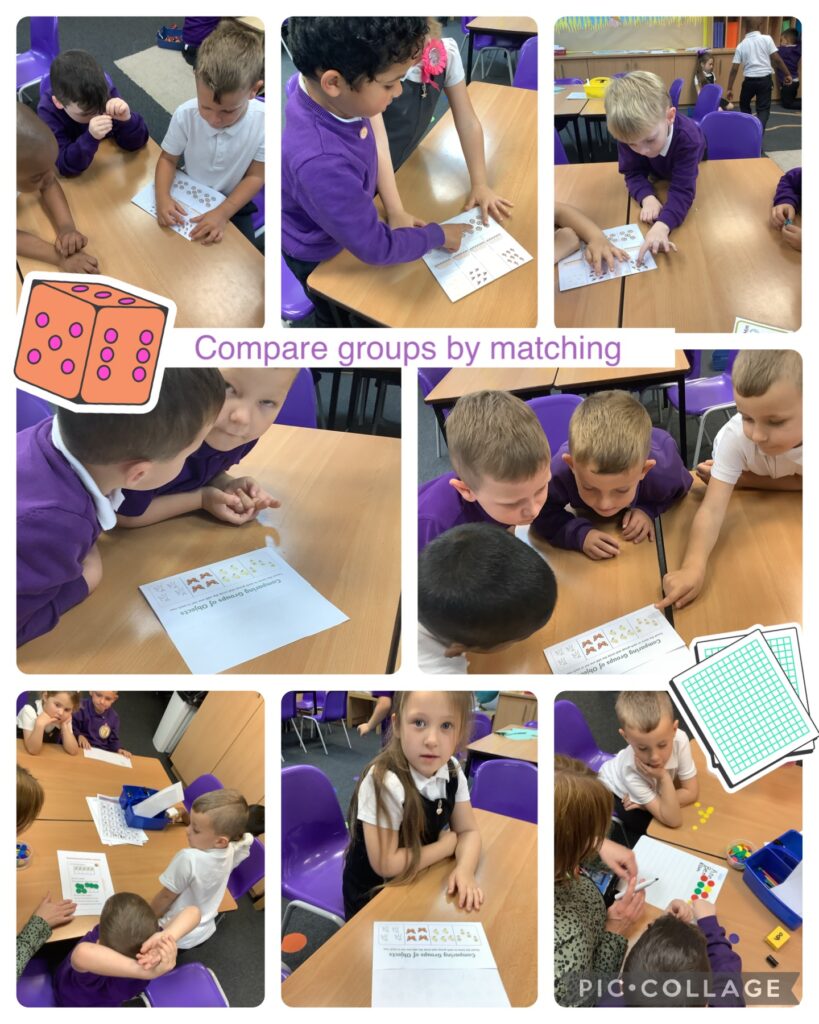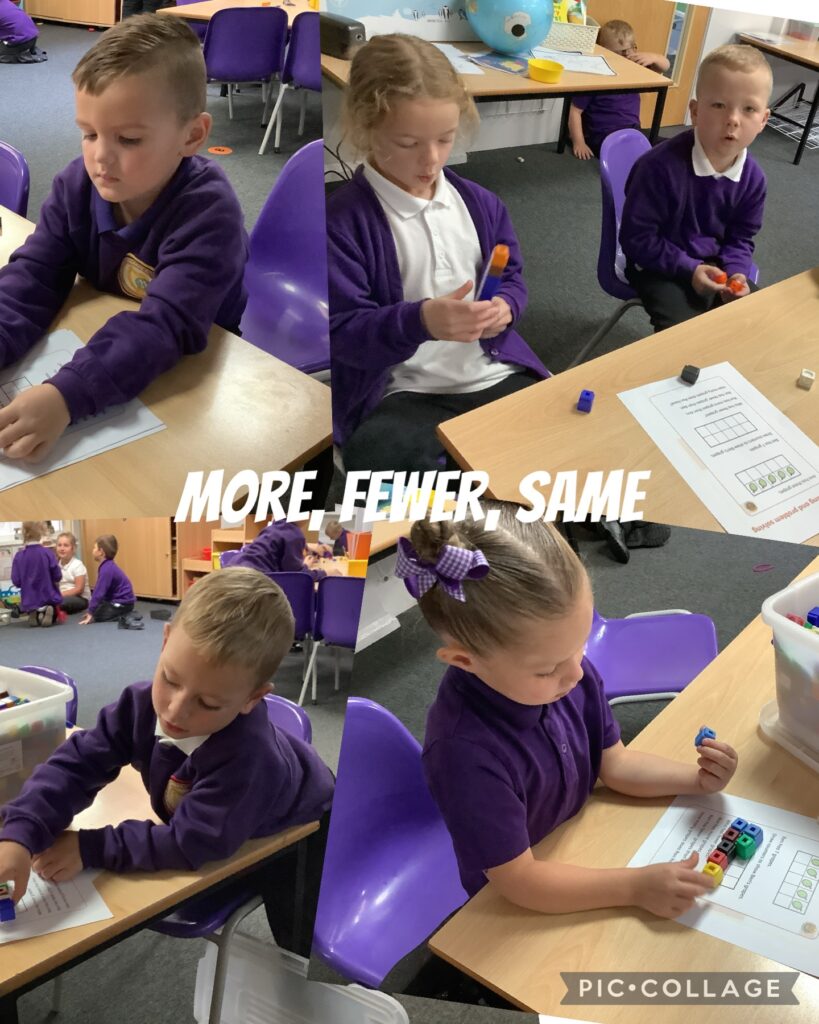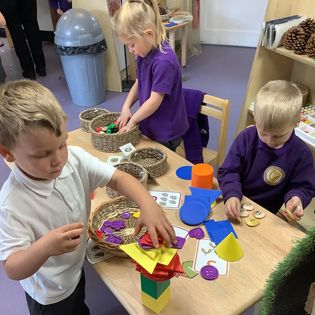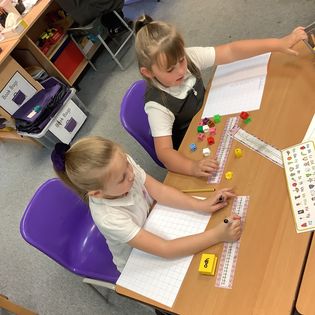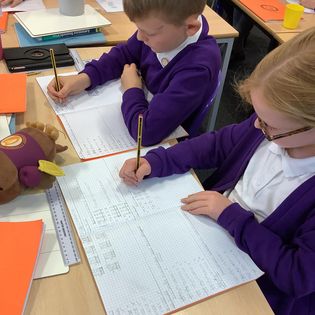Intent
Rationale
At Caedmon Primary, we recognise that mathematics is essential to everyday life, and necessary for financial literacy and most forms of employment. Therefore, a high-quality mathematics education is an essential foundation for understanding the world. We want to support children in their development of mathematics as well as the ability to reason mathematically, and a sense of enjoyment and curiosity about the subject. At Caedmon Primary we want to share our love of teaching maths with all children so that they leave our school with a secure and deep understanding of maths. We follow the National Curriculum for Mathematics. We are committed to ensuring that children are able to recognise the importance of Mathematics in the wider world and that they are also able to use their mathematical skills and knowledge confidently in their lives in a range of different contexts. We want all children to enjoy and be curious about Mathematics; to experience success in the subject; understand the importance of accuracy; develop the ability to reason mathematically; to use mathematical language with confidence and to apply their understanding systematically when problem solving. Through developing pupils’ abilities in all areas of mathematics, we expect that every child can become a secure and competent mathematician.
Aims
In line with the National Curriculum and current best practice, the children are taught to become fluent in the fundamentals of mathematics (including calculation strategies); reason mathematically using mathematical language and apply their knowledge and understanding to problem solving tasks. In order to achieve these objectives for all our pupils, we have begun to embed a Teaching for Mastery approach. Lessons are planned and delivered using concrete, pictorial and abstract representations in order to fully develop children’s learning. Children are also given opportunities to show their understanding in wide range of representations. Children are taught to solve a variety of routine and non-routine problems and demonstrate their ability to reason mathematically.
Key Concepts
Number, place value, addition, subtraction, division, multiplication, fractions, geometry – property of shapes, measurement, money, data handling, position and direction, statistics.
Knowledge Progression
At Caedmon we believe that Maths ‘depth’ is much more important than speed:
The National Curriculum states ‘Decisions about when to progress should always be based on the security of pupils’ understanding and their readiness to progress to the next stage. Pupils who grasp concepts rapidly should be challenged through being offered rich and sophisticated problems before any acceleration through new content. Those who are not sufficiently fluent with earlier material should consolidate their understanding, including through additional practice, before moving on.
Core Skills
Children are supported to develop their core skills;
Asking and answering questions, calculation, communicating ideas, compare, convince, covert, demonstrate, describe, draw, explain, estimate, interpret, justify, make connections, notice patterns, predict, prove, reason, represent, investigate and explore.
Literacy Skills
Development of mathematical vocabulary is taught from early years and is used to support the presentation and discussion of a mathematical justification, argument or proof.
Implementation
Strategies and Teaching Resources
At Caedmon Primary, we use the White Rose Maths programme as a basis for our mathematics teaching and this is where we take our planning from. We have also visited other schools and consulted with the National Centre for Excellence in the Teaching of Mathematics (NCETM) to research best practice in the teaching of mathematics. As a result of our research, we have adopted the concrete, pictorial and abstract approach to teaching mathematics across school. Pupils become fluent in the fundamentals of mathematics, through varied and frequent practice with increasingly complex problems over time.
Mathematics is an interconnected subject in which pupils need to be able to move fluently between representations of mathematical ideas. The programmes of study are taught in distinct domains, but planning ensures that the curriculum makes rich connections across mathematical ideas, particularly through data handling in science and other subjects. Pupils move through the programmes of study at broadly the same pace. In order that pupils achieve their full potential, they receive support and challenge through carefully scaffolded lessons. Children with SEND have specific targeted support according to individual and group need.
Each day, lessons begin with five minutes of learning times tables through the use of a counting stick and chanting/singing times tables. In Year 1, the children begin their times tables journey by carrying out counting sequences. Pupils in Years 2 through to Year 6 then complete a times tables test on Purple Mash on a Friday. We believe that being secure with times tables and basic skills ensures a child can become a confident mathematician.
Our times table sessions are then followed by an arithmetic session. In this time, teachers work with children to ensure they become fluent mathematically, securing the four operations and basic mathematical skills. We use the ‘5 a day’ model to ensure a fundamental understanding of the concepts of number.
Following on from this, the children are given the opportunity to consolidate previously taught skills in a ‘Review’ session. This allows us to constantly review pupils’ learning so that they have the non-negotiable building blocks of mathematics securely stored in their long-term memory.
The children will then access new learning, rich and sophisticated reasoning problems or apply previously taught skills in a different context for the remainder of the lesson.
Problem solving and reasoning is embedded in each lesson and not taught discretely at the end of a unit.
Mathematical Talk is also embedded in all lessons, vocabulary should be shared and stem sentences provided to model excellent explanations and reasoning skills.
Children are given opportunities to talk to their partners and explain/justify their thinking and answers in full sentences e.g. I know it is true because…
Effective questioning is used throughout the lesson to challenge children and deepen understanding and learning.
Assessment for learning is used within lessons to adapt the lesson/pace to the learners needs.
Regular summative assessment provides teachers with the opportunity to monitor and track progress.
We have high expectations and encourage a positive ‘can do’ mindset towards maths in all pupils, creating learning experiences which develop children’s resilience in the face of a challenge and carefully scaffolding learning so everyone can make progress. This is supported by
Deep and sustainable learning– lessons are designed with careful small steps, questions and tasks in place to ensure the learning is not superficial.
The ability to build on something that has already been sufficiently mastered – pupils’ learning of concepts is seen a continuum across the school.
The ability to reason and problem solve– pupils are encouraged to make connections and spot patterns between different concepts (E.g. the link between ratio, division and fractions) and use precise mathematical language, which frees up working memory and deepens conceptual understanding.
Conceptual and procedural fluency– teachers move maths from one context to another supported by concrete, abstract and pictorial representations.
Across the curriculum – Maths is interweaved across the curriculum and as a result, knowledge and skills are used in other subjects, further deepening learning.
Impact
Our learners will …
Our learners will use their taught knowledge to access problem solving and reasoning activities, not only in Maths lessons but across the curriculum. They will foster a love of learning mathematics, evident by their enthusiasm to take part in Maths lessons. Our learners are given the skills and knowledge to support them to become confident citizens with an understanding of their own economic well-being.
Please click on the Year groups below to see their Maths Long Term Plans:
Reception, Year 1, Year 2, Year 3, Year 4, Year 5, Year 6
Click here to see our progression document from Early Years to Year 6.
